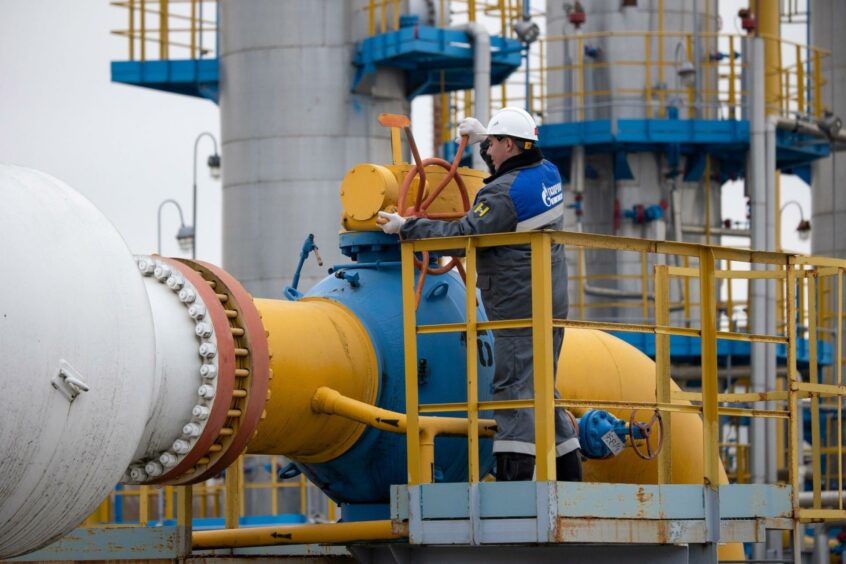
Russia’s gas giant Gazprom PJSC reported its highest-ever annual income for 2021, when natural gas prices soared during Europe’s worst energy crunch in decades.
The producer benefited from a surge in gas prices as Europe, its largest export market, faced a severe energy deficit due to post-Covid recovery allied to stockpiles at multi-year lows. While Gazprom met its delivery obligations, gas flows to the continent were capped as it prioritized re-stocking domestic inventories.
Net income rose to 2.09 trillion rubles in 2021 compared with 135 billion rubles the previous year, Gazprom reported Thursday. Revenues rose 62% to 10.2 trillion rubles, also the highest-ever annual result. Gazprom shares gained as much as 5% in Moscow trading.
Earlier this week Gazprom halted deliveries to Poland and Bulgaria and will keep the flows turned off until the two countries agree to a new demand from Moscow to pay for the fuel in rubles. Russia has threatened to halt gas supplies to other buyers who don’t pay in rubles and the European Union is scrambling to respond.
Dividend Prospects
Gazprom’s net-debt-to-Ebitda ratio fell to 0.7 by year-end and the company expects it debt burden to decline further in 2022, according to Deputy Chief Executive Officer Famil Sadygov. “That is the key to maintaining financial stability in a situation of high uncertainty,” he said in a statement.
In a December interview with the in-house publication, Sadygov said the company is on track to pay dividends for 2021 of more than 45 rubles a share. That would be nearly three times the previous record set in 2018.
However, Western sanctions on Russia, following its invasion, have already made a number of Russian companies, including steelmakers Severstal PJSC and NLMK PJSC, and gold miner Polymetal International Plc, to delay or cease payouts. State oil producer Zarubezhneft OAO asked the government to exempt the company from paying dividends for 2021, Interfax reported, citing a source with knowledge.
The finance ministry said that it would consider the dividend case of each state-owned company separately. “State-owned companies are more likely to pay dividends in order to replenish the budget,” Andrey Lobazov and Maria Fedorova, analysts at Aton, said in a research note April 15. “With over 50% controlled by the government, Gazprom’s dividends form a key contribution to the state budget.” Aton estimated Gazprom’s probability to pay dividends as moderate.